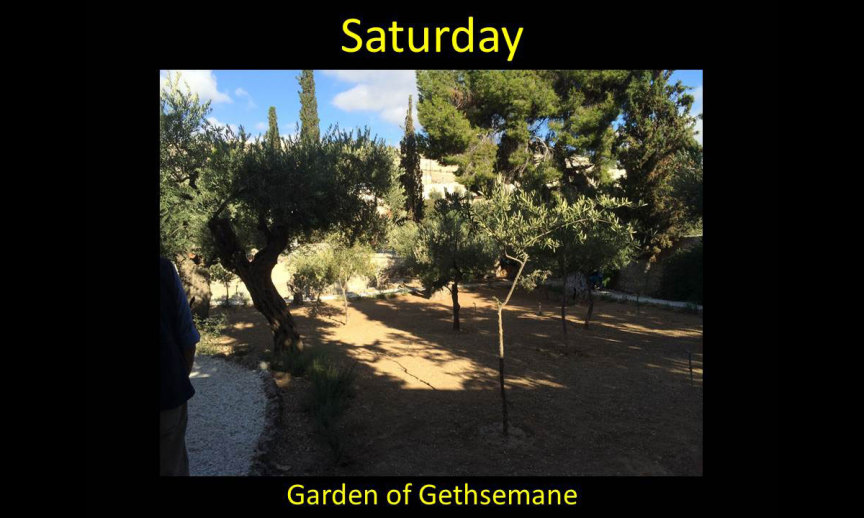The Israelites appeared to be easy prey. Having left Egypt suddenly and in disarray, they were now entangled in a wilderness for which they were not prepared – no water, no shelter, improper clothing, and a lack of tools and experience to deal with the desert. They also lacked weapons to defend themselves against Pharaoh’s army. Pharaoh’s wisdom had caused him to conclude that Israel was right where he needed them and that God’s people could be recaptured quickly and easily, to be enslaved once again for his service (Exodus 14:3).
What Pharaoh forgot was how God had ordered the Israelites into this “predicament”. He forgot how God had sent Moses and Aaron multiple times to deliver His message – “Let my people go!” Then, after Pharaoh’s refusal, God amazed Egypt and Israel alike with ten oppressive plagues. Now, God had ordered the Hebrews into the wilderness to give Him further occasion to amaze them, but Pharaoh was oblivious to God’s ultimate sovereignty and control. With his vast army battling an unarmed foe, what could go wrong? Pharaoh was forgetful of how long and powerful God’s arm was. He Israelites were not un-“armed”.
Pride and revenge motivated Pharaoh’s pursuit of Israel, accompanied by a steaming hot side dish of malice. Fear also contributed heavily to his motivation. Pharaoh panicked with fright when realized the consequences of giving Israel permission to leave, fearful after the deaths of all the firstborn. Now, still in mourning, it appears he had forgotten the words he had spoken, giving them the order to leave with his full consent. Only hours or days later, he forgot his command and portrayed the Israelite’s departure as a revolt and a lack of allegiance to him.
Instead of meditating on the horror of the plagues, which took the lives of his own family, Pharaoh reflected with regret on his decision. Despite having all the reasons in the world for having freed Israel, he was now angry at himself. Forgetting the sting of death and the recent funerals, he asked himself why he had allowed them to leave. It angered and embarrassed him that Israel had gained its freedom and that Egypt had lost the profit that came with their labors, not to mention the pleasure of oppressing them day after day. He also forgot that trampling upon God’s chosen ones is ultimately a losing cause. Pharaoh would not be the last to consider Israel’s freedom to be a grievance (Esther 5:12-13, Acts 5:17, 33).
It is easy to imagine what a rage Pharaoh had induced in himself, roaring like a lion who had lost its prey. Ironically, Israel was just as forgetful and upset. They were frightened when they perceived Pharaoh was pursuing them. They were well aware of the strength and determination of the enemy . They also understood their own weaknesses– numerous, traveling on foot, unarmed, undisciplined, and unprepared from their long enslavement. Worse yet, they were trapped by physical barriers – a range of impassable rocks (Pi-hahiroth), forts and garrisons at Migdol and Baalzephon, and, of course, the Red Sea. With the Egyptians pursuing them from behind, they must have been afraid.
In their distress, some of the Israelites began to pray, one good effect in the midst of all this trouble (Exodus 14:10). God often brings us into circumstances that bring us to our knees. Whereas He will not tempt us beyond what we can bear (1 Corinthians 10:13), He allows circumstances to overwhelm us so that we turn to Him. In contrast, others cried out against Moses, their fear causing them to begin murmuring (Exodus 14:11). They gave themselves up for lost, having forgotten how God had delivered them to this point by means of His miraculous power. It was as if God’s arm had been shortened suddenly and He was suddenly unable to perform miracles that day.
Their distrust in God was inexcusable. Did they not see themselves under the guidance and protection of a pillar from Heaven? Was not God Himself leading them to the Promised Land? Moreover, they quarreled with Moses for having brought them out of Egypt, dishonoring the freedom given them by God Himself and whose wrath was their only other option. Whereas the Egyptians were angry with themselves for doing the best deed they had ever done, the Israelites were angry with God for the greatest kindness that was ever done to them.
A generous and compassionate spirit would have concluded, “It is better to die in the field of honor than to live in the chains of slavery.” Under God’s leadership, the Israelites could not lose, even if it cost them their lives. They might have said, “It is better to live as God’s free men in the open air of the wilderness than under the Egyptian’s bondmen in the smoke of the brick kilns.” Base ingratitude, however, caused them to be forgetful regarding God’s bounteous provision.
It is not normal to forget God’s hand and His provision in our lives, but it is easy to do so, especially when circumstances turn dark. The Israelites had as soon forgotten the miracles of mercy as the Egyptians had forgotten the miracles of wrath. God continues to provide for us today, although He sometimes allows trouble in our lives. We should not fall into the same trap and be forgetful of how He gave us salvation through His Son, Jesus Christ. We should measure His love through His gift of Jesus Christ, not the difficult circumstances He brings to our lives. The LORD will fight for you; you only need be still (Exodus 14:14). Pray today that He will not let you be forgetful too.
In His love and service,
Jeff Myers
A servant of Jesus Christ
><((((º>`·.¸¸.·´¯`·.¸.·´¯`·…¸><((((º>`·.¸¸.·´¯`·.¸.·´¯`·…¸><((((º>
¸.·´¯`·.¸.·´¯`·…¸><((((º>`·.¸¸.·´¯`·.¸.·´¯`·…¸><((((º>`·.¸¸.·´`·.¸¸.·´¯
© Copyright 2015, I’m Normal.™ I AM Ministries, All rights reserved

